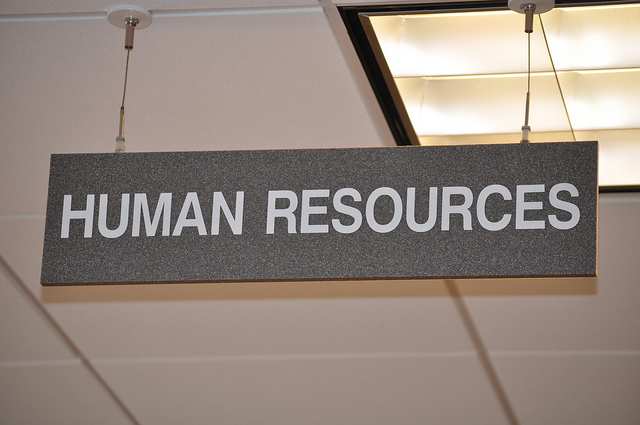
Why Human Resources Matters to the C-Suite
Why Human Resources Matters to the C-Suite https://csuiteold.c-suitenetwork.com/wp-content/uploads/2015/01/6811076048_94b93b1e06_z.jpg 640 425 C-Suite Network https://csuiteold.c-suitenetwork.com/wp-content/uploads/2015/01/6811076048_94b93b1e06_z.jpgby Karolynn Humberd-St-Pierre
Someone once told me “business would be great if we didn’t have employees.” While sometimes I couldn’t agree more, the truth is most companies would not survive without employees — that’s when many companies depend on some sort of human resources. But HR can do more than just manage employees and, hopefully, keep you out of the sights of attorneys. HR is central to the success of an organization and is critical to having the right strategy and effective operations.
For many, HR is an afterthought. Your sales people see HR as members of the “Deal-Prevention Team” with your legal advisers. Or, they see HR as the enforcers because they are so in tune with the law. Many companies don’t even think there is any ROI on HR, while many organizations consistently under-deliver, and HR is not always well liked or appreciated.
While I am sure most HR teams could show charts stating the cost of a new hire or the days a position took to fill, you should want more than that from your HR management and know that you have the right team in place.
What Should the C-Suite Expect of their Human Resource Management Team?
Look for Expertise and Insights to Build An Efficient, Agile and Growing Organization
While it can vary from person to person what the central role of HR should be, the importance of talent management and succession planning should come to the forefront in all interviews.
Talent Management and Succession Planning
The C-Suite recognizes its growing need for leadership that is skilled, available and ready to act. This is especially true of those who are confronting the challenges posed by multiple generations in the workforce and the exodus of skilled workers from the organization through retirement.
Look for HR to play a leadership role in identifying and developing talent. Look for HR to help the organization identify the behaviors and skills that will drive the organization productivity and success. Ask for customized approaches to the individual leader development to accelerate personal effectiveness and individual coaching.
With the downturn in the economy, many companies put succession planning on the back burner. But now that the recovery is on its way, look for your HR to lead a renewed focus on both talent management and succession planning.
Create the Employment Brand
Finding and keeping talent continues to be an area of strong need. HR is vital to be connecting the company’s culture with its objectives, as well as defining and communicating what makes their organizations great places to work.
Four Generations in the Workplace
HR will need to help predict and manage the impact of the four generations in the workplace, especially in terms of recruiting, building teams, dealing with change and motivating employees. The C-Suite should acknowledge that the generations don’t talk the same language or use the same tools to get their work done. It is imperative each organization find someone who can help their organization better understand and manage these differences.
Employee Communications
Look for HR to own Employee Communications and ensure that middle managers, especially, have the tools and information needed to communicate with and lead employees.
Social Media
A solid grasp is needed on how to use social media to communicate with and recruit employees. Even developing a best practices around employee use of social media platforms as an engagement and communication tool can be essential.
Trend Analysis and Forecasting
Being able to translate trends into valuable opportunities for the company is vital so the workforce can be prepared to drive more productivity. HR should always have an unbelievable desire to grow the business and think about what is next.
Change Management
Expect senior HR executives to have a toolbox of change management practices, a consulting mindset and a strong understanding of how compensation and performance management can be used to support change.
HR executives are crucial business partners to the C-Suite and to the business. Look them to be coaches and sounding boards for the executive team while acting as confidants with respect to executive team members.
As much of the C-Suite is looking to their senior HR Executives to continue to consult on key challenges ahead — including managing across generations, continuous change management and communications in the age of social media — they should expect the successful HR executive to couple their technical and people skills with a much deeper understanding of real business issues.
Karolynn Humberd St-Pierre is a former employment attorney, Senior Human Resource Professional, author and speaker known for her expertise in helping businesses navigate the complexities of human resource management. Her book, The Small Business Human Resource Bible has become a desktop guide for small business owners nationwide. She is an active speaker with the Small Business Administration and the Small Business Development Centers on HR legal related topics since 2010. In 2009 Ms. St-Pierre founded Symmetry Consulting, LLC. Symmetry Consulting partners with its clients so they can focus on their bottom line and business growth, while Symmetry manages their HR functions and ensures compliance with labor laws. Find her on Facebook, LinkedIn and Twitter @KarolynnStPierr.




